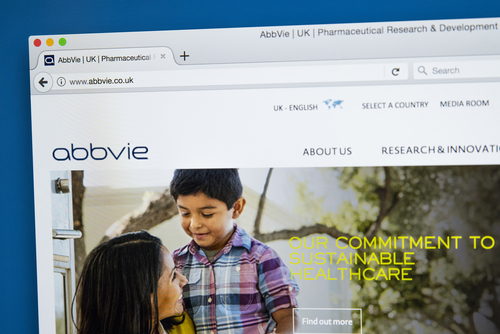The Pharma industry is seeing a big push to include sustainability initiatives across multiple sectors. AbbVie has spent a decade competing with brands like Pfizer as a public company with reasonable success. By 2027, it could become the world’s top-selling organization in its category.
While working to increase sales, meet pricing goals, and develop innovative products, AbbVie has also been a leader in being an eco-friendly company.
Since 2015, AbbVie has reduced its carbon emissions by 25%. They hope to increase that figure to 50% by 2035. [[1]]
In its ESG (Environmental, Social, and Governance) report released at the end of May 2022, the company outlined several additional initiatives it hopes to accomplish while working toward the goal of a healthier planet.
Our Planet Needs More Than Emissions Awareness
AbbVie promises to source all of its energy from renewable resources by 2035. The company won’t send any waste to landfills and looks to diversify its employee base to bring new ideas into the conversation.
In 2021, AbbVie was able to divert 92% of the waste it generated from landfills, while one-third of its electricity came from renewables.
The report states, “We recognize that our company and industry hold a unique opportunity to make a real difference in people’s lives. It’s not just the breakthroughs we achieve that matter; it’s also the paths we take to achieve them.”
As part of this set of eco-friendly initiatives, the company intends to purchase more hybrid and 100% electric vehicles for its fleet. It also replaced steam boilers that were more than 30 years old in one of its Italian manufacturing sites with a new, more energy-efficient model.
Why Diversity Matters to AbbVie in Its Environmental Initiatives
Black and African-American patients in the United States represent approximately 13% of the population. This group is more likely to die from most cancers and heart disease than those of Caucasian or European descent.
Despite those facts, Black and African-American patients only represent about 8% of the participants in the trials that regulators review for making decisions. [[2]]
The ESG report notes the following. “To effectively serve the populations living with the diseases that we study and for whom we create solutions, it is imperative to design inclusive clinical research programs with equitable access for patients and physicians.”
As part of the push to a more sustainable future, AbbVie notes that it needs to do better in terms of pay equity. The company is committed to conducting an annual analysis of its payment structures to ensure equitable compensation across all ethnicities and genders.
Medicine Only Makes a Difference When People Can Use New Products
Prescription medication is one of the most important elements of a person’s treatment plan when they have health issues to manage. Although the research and development costs for new medications are high, expensive drugs also make it harder for the average person to access these innovative products.
The most expensive single-dose drug in the world is currently Zolgensma. It is a gene-therapy product that can save the lives of infants who’ve been diagnosed with Spinal Muscular Atrophy. It was approved in May 2019, and the total cost is $2.125 million. [[3]]
Zolgensma works by replacing the missing or defective SMN1 gene and is considered potentially curative. Even when insurers are permitted to pay for the drug in installments, the cost may not be covered for all patients.
AbbVie’s ESG report says, “We also recognize that innovative treatments can only make a difference if patients can access the medicines that they and their providers choose.”
To help facilitate treatment opportunities in the United States, AbbVie provides co-pay assistance to anyone with commercial insurance. This program has no income restriction, allowing patients to pay as little as $5 to $10 per month to receive the medicines recommended in their treatment plan.
“As we approach our 10-year anniversary of being an independent company, we continue to operate with intention and integrity to advance the long-term health of our patients, people, and planet,” AbbVie says.
Little changes can make big sustainability improvements, whether individually or as a large multinational company. Even riding a bicycle instead of driving is a choice we can magnify together to help our planet. No matter how small it might be, we’re working toward the change we want to see when we do our part.
References:
[[1]] Key Performance Indicators - For the Resilience of Our Business - Societal Impact | AbbVie; [[2]] Cover Story | One Size Does Not Fit All: The Role of Sex, Gender, Race and Ethnicity in Cardiovascular Medicine - American College of Cardiology (acc.org); [[3]] 10 of the Most Expensive Drugs in the US












